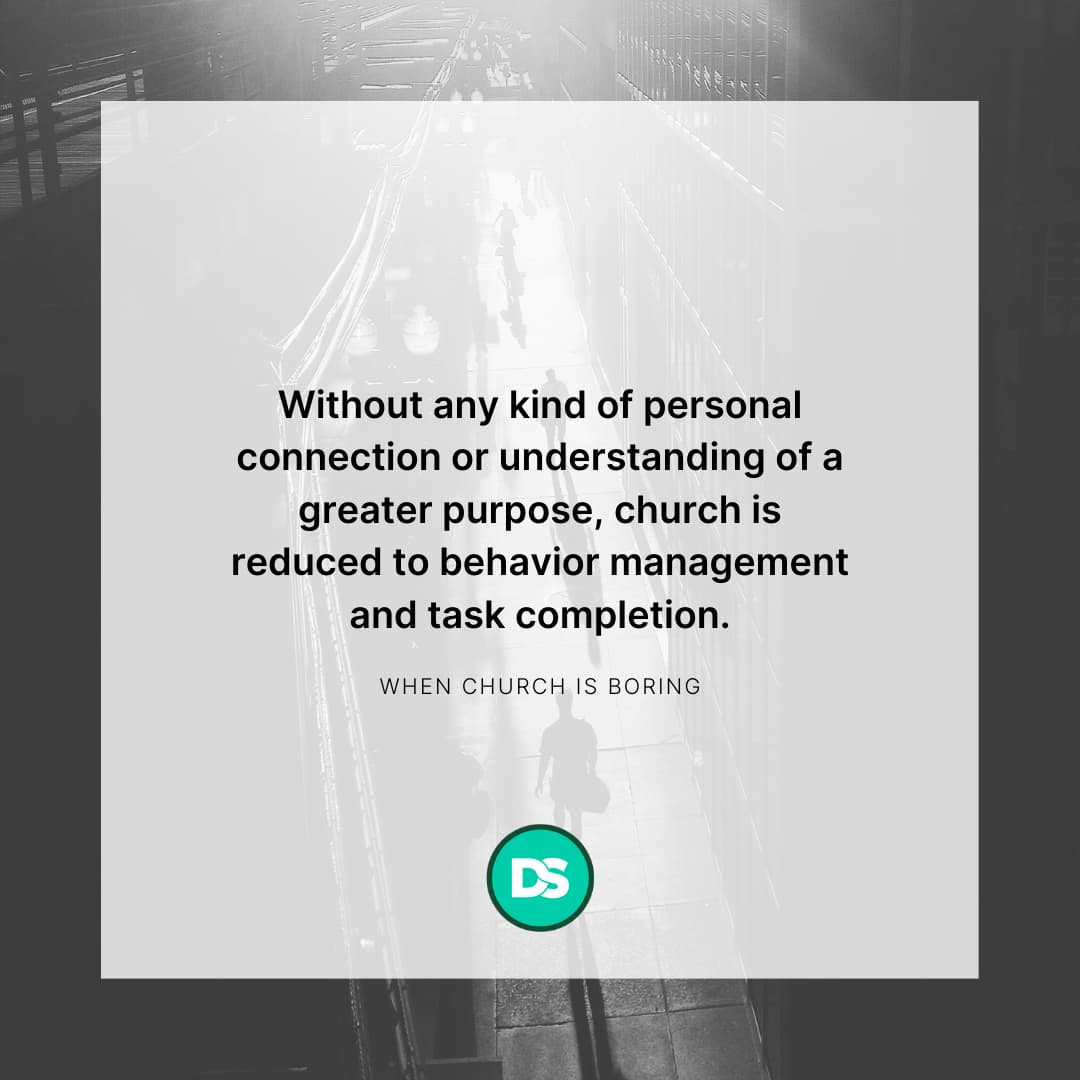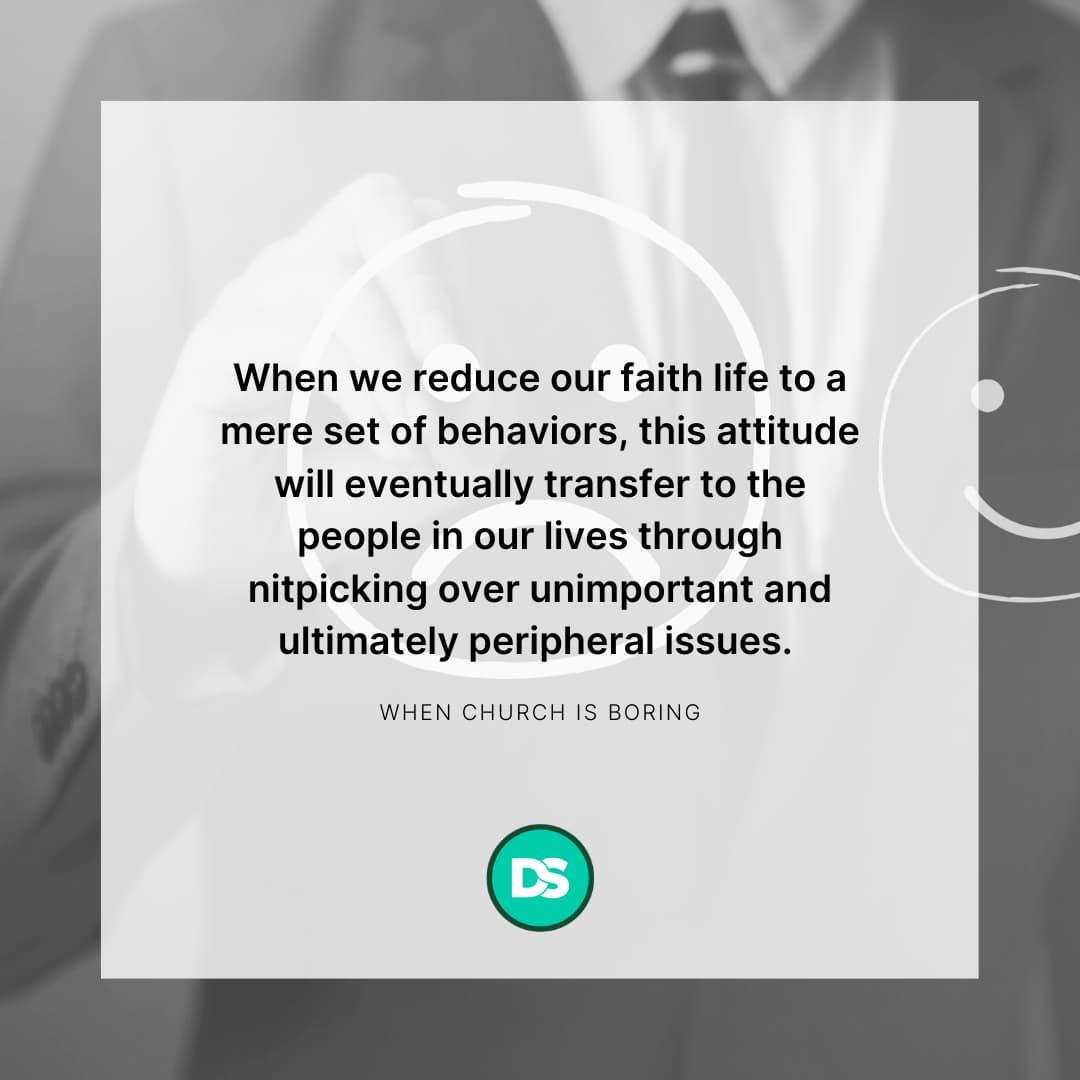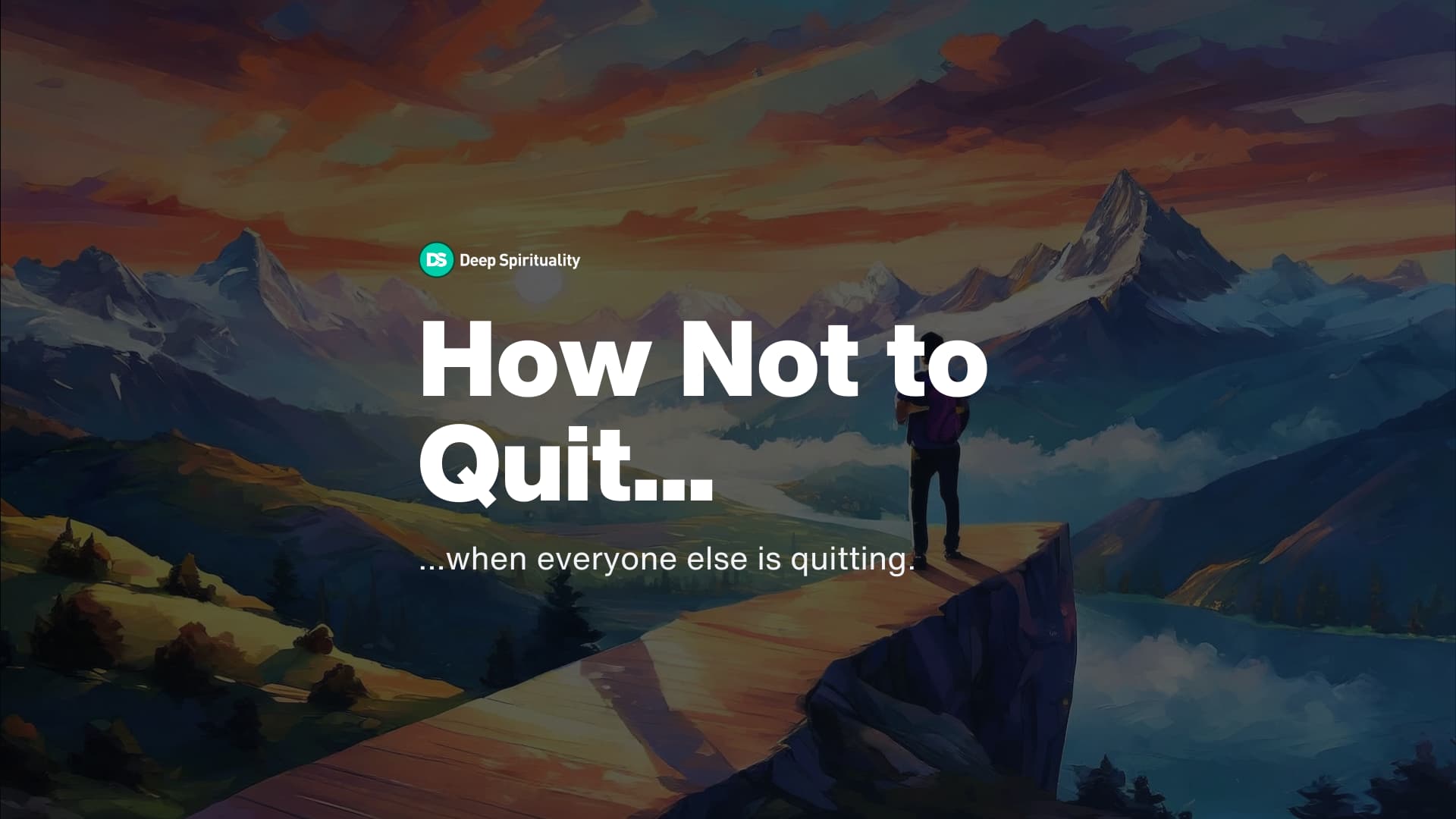Table of Contents
In high school, I somehow always managed to fall asleep within 15 minutes of the start of trigonometry class.
Maybe it was the warm classroom, or the fact that it took place immediately following lunch period. Every day without fail, there I would be, forehead in elbow while my teacher did her best to equip me for the future.
The phenomena continued in college, where I perfected the art of “discrete snoozing” (perfected in my mind, anyway) while nestled in the crowded yet cozy lecture halls of the University of California, Santa Cruz. In fact, I managed to take things a step further and simply stay in bed some mornings after learning that in college, no one takes attendance.

Needless to say, I was not on any honor roll or dean’s list. While I managed to somehow graduate and stumble into a career (see: God guiding our lives), I’m often hit with pangs of regret thinking about all the time, money, and emotional energy wasted and potential squandered during my academic years.
So what exactly does all this have to do with God?
As a thirty-something male who’s gone to church my whole life, I often find myself detached and uninspired as I move through the routines I’ve established for myself. I tend to associate spiritual wellbeing with religious metrics such as church attendance and hours clocked reading my Bible.
The result is a walk with God that can at times feel like a relationship with my trigonometry teacher – well-behaved enough to avoid scorn, but devoid of any kind of attachment or personal connection.

Reflecting on my time at school helped me better understand why my Christian life can feel dead at times. Without any kind of personal connection or understanding of a greater purpose (I was not particularly driven to excel nor motivated by an end goal like grad school or an internship), both experiences are reduced to behavior management and task completion.
These people honor me with their lips, but their hearts are far from me. Their worship is a farce, for they teach man-made ideas as commands from God.
Matthew 15:8-9 NLT
If you’re reading this devotional, there’s a good chance you’re someone who is feeling like your spiritual life is a bit lacking.
Maybe you’ve gotten past the period of your life where most of your egregious behavior took place, and now you find yourself less clear on your need for God and his kingdom, beyond the desire for community and morality. Or perhaps a friend told you as much and you’re trying to get clarity on why they said so.
Either way, these points will help you get a sense of where things may have started to break down, and what you can do to start rebuilding the zeal in your walk with God.
We’ll break things up into two sections: symptoms and solutions.
Symptoms: Signs you’ve lost your passion for God
A note before diving into this section.
Self-reflection is hard. Harder still is inviting feedback, especially in an area that feels so personal as our spiritual life.
As you read through these symptoms, keep in mind that just about everyone will find themselves in at least one of these camps throughout their lives. The objective here is to identify and ultimately remove any obstacle that is standing between ourselves and God.
We’ll be reading primarily from the book of Matthew, which has an excellent collection of examples of Jesus calling out the hypocritical nature of the religious establishment. I personally believe these stories wouldn’t be in here as often as they are unless God wanted us all to learn from them, regardless of our experience with church.
Reading the Bible is boring
The seed that fell among the thorns represents those who hear God’s word, but all too quickly the message is crowded out by the worries of this life and the lure of wealth, so no fruit is produced.
Matthew 13:22 NLT
The first warning sign to watch out for is when you start losing interest in reading the Word.
Jesus’ parable of the sower in Matthew 13 lays out four different responses we can have to the Bible. I zeroed in on the “thorny” soil because it describes a heart that is being pulled in other directions, too distracted to give the Word the attention it needs to impact our lives.
Sometimes our disinterest in the Bible is rooted in the fact that we have things in our life that are either more stimulating or so stressful that they diminish the influence the scriptures have in comparison with those issues.
Church positions matter too much to you
Then Jesus said to the crowds and to his disciples, [2] “The teachers of religious law and the Pharisees are the official interpreters of the law of Moses. [3] So practice and obey whatever they tell you, but don’t follow their example. For they don’t practice what they teach.
[4] They crush people with unbearable religious demands and never lift a finger to ease the burden. [5] “Everything they do is for show. On their arms they wear extra wide prayer boxes with Scripture verses inside, and they wear robes with extra long tassels. [6] And they love to sit at the head table at banquets and in the seats of honor in the synagogues. [7] They love to receive respectful greetings as they walk in the marketplaces, and to be called ‘Rabbi.’ Matthew 23:1-7 NLT
One of the big issues Jesus had with the religious establishment was the way they lorded over people their strict (and selective) adherence to their traditions.
They placed an undeniable amount of importance on a person’s position or ranking and valued their status over the quality of their relationships. This worldview ultimately influenced people to believe that their value was connected to said status, rather than the qualities Jesus espoused such as love, service, and humility.

The longer we go to church, the easier it is to assimilate into its culture. After a while, doing the good, “Christian” thing may not be hard anymore because you’ve stopped committing the glaring sins that initially drove you to seek God’s mercy. Since you’re no longer operating out of a sense of gratitude for that forgiveness, the only validation left is how much affirmation you get from people acknowledging your spiritual performance.
In this state, when someone other than you gets praise or a position in church that could have gone to you, it can feel like an existential crisis is imminent.
A typical progression for someone who is used to attention from people but no longer receives it can look something like:
- Panic – Why am I being overlooked?
- Anger – I’m not getting the attention I deserve.
- Resentment – I don’t feel valued.
- Divisiveness – I’m going to pursue my own agenda.
If you find yourself relating to this series of emotions and feeling you are deserving of more recognition, there’s a good chance that somewhere along the way your focus moved off of God and onto people.
Praying feels like a grind
“When you pray, don’t babble on and on as the Gentiles do. They think their prayers are answered merely by repeating their words again and again. [8] Don’t be like them, for your Father knows exactly what you need even before you ask him!
Matthew 6:7-8 NLT
Prayer is supposed to be an emotional, personal and intimate experience we share with God. In his critique of the Gentiles, Jesus cautions us not to reduce this time to merely repeating the same words over and over again in hopes that we’ll get what we want out of God through brute force.
Read more: Why Fasting and Prayer Will Renew Your Focus on God
A common trap we can easily fall into is losing our sincerity in prayer by substituting a laundry list of duties and desires for authentic expressions of feelings and needs. Either that, or we just become so rote and routine when we pray that we may as well hire someone on Taskrabbit to pray for us.
Think of the classic prayer for our food. Watch this video and tell me it doesn’t strike a little too close for comfort:
It’s funny but also a little too real.
You’re detached from people you’re trying to help
“Watch out! Don’t do your good deeds publicly, to be admired by others, for you will lose the reward from your Father in heaven. [2] When you give to someone in need, don’t do as the hypocrites do—blowing trumpets in the synagogues and streets to call attention to their acts of charity! I tell you the truth, they have received all the reward they will ever get.
Matthew 6:1-2 NLT
Jesus called out the hypocrisy of those who were doing good deeds for insincere reasons. Helping people because you are genuinely concerned about their wellbeing is going to have a much different outcome than helping people because you’re trying to enhance your reputation or feel better about yourself.
Someone who’s lost their passion for God may still show up to a church service and even do some objectively good things for people, but the impact they can have will be blunted. Their detachment from the people they’re supposedly serving will prevent them from forming attachments that lead to spiritual relationships and please God.
You’re too stressed
“That is why I tell you not to worry about everyday life— whether you have enough food and drink, or enough clothes to wear. Isn’t life more than food, and your body more than clothing? [26] Look at the birds. They don’t plant or harvest or store food in barns, for your heavenly Father feeds them. And aren’t you far more valuable to him than they are? [27] Can all your worries add a single moment to your life?
Matthew 6:25-27 NLT
A fundamental tenet of our relationship with God is the belief that he loves us and can be trusted to meet our most important needs.
A good sign that you’ve started to drift from this principle is when you start equating church with more to do, or as time taken away from what you feel is more pressing or important.
Jesus implores us not to extol needless amounts of emotional energy by worrying about our lives. He tells us in Matthew 6:33 that our needs will be met when we seek his kingdom first.
If this is not something you believe in, then odds are you’re going to view the time you put into spiritual activities as additional stress, since they don’t relate directly to your job, chores, or health needs.
You’re all behavior, no heart
“What sorrow awaits you teachers of religious law and you Pharisees. Hypocrites! For you are careful to tithe even the tiniest income from your herb gardens, but you ignore the more important aspects of the law—justice, mercy, and faith. You should tithe, yes, but do not neglect the more important things.
Matthew 23:23 NLT
After attending church for a while, the things that felt like a sacrifice for me at first (attending events outside of Sunday morning, tithing, etc) became routine. It was no longer required emotional effort for me because it was baked into my routine and became part of my identity.
When we reduce our faith life to a mere set of behaviors, this attitude will eventually transfer to the people in our lives through nitpicking over unimportant and ultimately peripheral issues.

The best way to gauge whether you’ve fallen into this pattern is to ask a friend or two. The people that know you best should be able to give you a fair assessment as to whether you display the qualities Jesus mentions (justice, mercy, and faith), or if you tend to pay more attention to behavioral matters.
Are you known for being understanding and forgiving? Or rigid and someone who holds a grudge? Do you help people grow, or do you put others down for falling short? Do you spend more time talking about the things you can do, or asking for help with the things you can’t?
It seems appropriate to quote Maya Angelou in this instance:
I’ve learned that people will forget what you said, people will forget what you did, but people will never forget how you made them feel.
Maya Angelou
Solutions: how to reignite your interest in spirituality
Hopefully, if you’ve read this far, you haven’t been scared away by the aforementioned symptoms.
It can be hard owning up to the ways we’ve become religiously rigid. I can speak from personal experience that the slide into church doldrums is an easy one to make because of how much I seek routine and comfort as a way to manage the stress of life.
But there is hope! These five steps are not profound, just a few basic insights that will help reorient our thinking around what a relationship with God is supposed to be like.
Get back to basics
Wash me clean from my guilt. Purify me from my sin. [3] For I recognize my rebellion; it haunts me day and night. [4] Against you, and you alone, have I sinned; I have done what is evil in your sight. You will be proved right in what you say, and your judgment against me is just.
[5] For I was born a sinner— yes, from the moment my mother conceived me. [6] But you desire honesty from the womb, teaching me wisdom even there. [7] Purify me from my sins, and I will be clean; wash me, and I will be whiter than snow. [8] Oh, give me back my joy again; you have broken me— now let me rejoice. [9] Don’t keep looking at my sins. Remove the stain of my guilt. [10] Create in me a clean heart, O God. Renew a loyal spirit within me. [11] Do not banish me from your presence, and don’t take your Holy Spirit from me. [12] Restore to me the joy of your salvation, and make me willing to obey you. [13] Then I will teach your ways to rebels, and they will return to you. Psalm 51:2-13 NLT
I’m breaking from the Matthew theme with this point but it would be remiss of me not to include one of the most powerful passages about personal transformation.
After David came to terms with the impact of his sin (adultery, murder, deceit…it was bad), he pleaded with God not only for forgiveness for his wrongdoings but to be reinvigorated with a new heart. He didn’t just want to be absolved, he wanted to be restored to the point in his spiritual life when he was content with God and motivated to love others.
A good place to start if your spiritual life has grown dull and uninspired is to go back to basics. Instead of focusing your energy on your various grievances with church and the people in it, take time in prayer to identify the sins that you see most affecting your capacity to enjoy where God has you in life.
These can include:
- Bitterness – when your unresolved pain is making you unhappy
- Envy – when your prickliness is rooted in the fact that others have something you want
- Pride – when you’ve closed yourself off to other perspectives and influence
- Impurity – when you are replacing intimacy with God and people for temporary pleasure
- Greed – when you never feel happy because you never feel like you have enough
There are plenty more sins to study in the Bible and meditate on, but there are a few to get started on the road to discovery.
Not only will you free yourself up from the guilt and discouragement of sin’s stagnation, but you’ll be able to rediscover the joy of helping other people turn their lives around too (verse 13). And that’s when church starts becoming inspiring again.
Identify your blind spots
“Refuse to be a critic full of bias toward others, and judgment will not be passed on you. [2] For you’ll be judged by the same standard that you’ve used to judge others. The measurement you use on them will be used on you.
[3] Why would you focus on the flaw in someone else’s life and yet fail to notice the glaring flaws of your own? [4] How could you say to your friend, ‘Let me show you where you’re wrong,’ when you’re guilty of even more? [5] You’re being hypercritical and a hypocrite! First acknowledge your own ‘blind spots’ and deal with them, and then you’ll be capable of dealing with the ‘blind spot’ of your friend. Matthew 7:1-5 TPT
We lose interest in church when our relationships grow superficial. When we’re shallow with our friends, we don’t share details about our lives that are vulnerable.
Relationships like this can eventually succumb to criticalness and self-righteousness since our attention will primarily be fixated on the shortcomings of others.
One of the best ways to remedy this is to become aware of and honest about your own issues, or “blind spots” as this passage refers to them. Tackling this will bring a level of depth to your relationships that may have been lacking prior since we need each other to help better understand them.

Your relationships will stay superficial, judgy, and critical until you decide to lead with transparency. Try putting yourself out there instead of looking for ways to feel better about yourself by putting others down (in person or in your head).
Church is an unattractive place when we’re all just trying to be better than each other to maintain our self-esteem. It will be full of life and energy when we’re all vocal about our missteps, needs, and issues.
Pray big, pray persistently, and pray for real
“Keep on asking, and you will receive what you ask for. Keep on seeking, and you will find. Keep on knocking, and the door will be opened to you. [8] For everyone who asks, receives. Everyone who seeks, finds. And to everyone who knocks, the door will be opened.
Matthew 7:7-8 NLT
Our spiritual lives get pretty dull fast when we repeat the same rote prayers, devoid of any boldness or belief that they are making a difference. If you pray to God but see the time merely as talk therapy, you’re setting yourself up to be disappointed when you don’t see any changes happy in your life that can be attributed to God working.
I’ve found myself in this place more often than I’d like to admit, and it can taint my view of God and his kingdom. In this state, what should be the most dynamic and exciting part of my day becomes just another routine.
I find that this tends to happen when I face something in my life that negatively affect my faith, such as:
- Disappointments and setbacks
- Unresolved hopes and dreams
- Lingering guilt
- Overwhelming stress or fear
If you stop praying and settle for halfhearted “check-ins” with God, then you will ultimately find yourself in a position where you are questioning why you’re even bothering to pray at all.
Read more: How to Pray: 10 Tips To Help Anyone Connect With God
I like this passage a lot because Jesus is encouraging us to be persistent in our prayers. The more we come to him expressing everything in our hearts, including the things we really hope to see happen, the deeper our relationship will develop with him.
It takes three things from this scripture, as illuminated in the Life Application Study Bible:
- Faith – do you believe God is real and wants to bless your life?
- Focus – eliminate distractions, find an inspiring place to pray
- Follow-through – don’t give up on praying. Talk to your friends to get perspective on how God may be answering your prayers
Change your prayer life, and watch your view of your spiritual life transform as it becomes more personal and powerful.
Rediscover God as a father
“You parents—if your children ask for a loaf of bread, do you give them a stone instead? [10] Or if they ask for a fish, do you give them a snake? Of course not! [11] So if you sinful people know how to give good gifts to your children, how much more will your heavenly Father give good gifts to those who ask him.
Matthew 7:9-11 NLT
When I became a father, my perspective on just about everything changed. Movies are more emotional, crossing the street is a life or death scenario, and Christmas has become a stressful (albeit still magical) event. More than anything though, I can start to understand at a very basic level some of the feelings God must-have for me.
When my daughter struggles to put on her shoe or balance on her bike, I want nothing more than to fill her with confidence and security that I love her regardless of whether she picks it up today or not. When she’s overwhelmed or sad, I want to hug her and reassure her that things will be ok. When she chucks her toy across the room and earns a time out, I want her to understand that we are trying to help her develop the tools to manage her emotions in a productive way.
When I pray to God, I typically do not approach these times thinking he thinks and feels similarly. I can view him in a detached, impersonal way, assuming he is criticizing my spiritual performance or dolling out an arbitrary series of orders to carry out.

If you share this type of view of God, it’s only a matter of time before you’ll start seeing everything pertaining to God as impersonal.
If you can understand and believe that God sees us like a loving father views his child, then you’ll approach your relationship with him differently. Prayer becomes more intimate, and church becomes an extension of the love he shows for us, manifested through other people who are all trying to embody and imitate it.
This principle can be a difficult one to embrace if you have an estranged relationship with your father, so I understand that not everyone will respond to this point in the same way. For those of you in this camp, I’d recommend the book Father Heart of God, which addresses how God can heal the emotional wounds caused by our earthly fathers.
Refocus on the Kingdom
Seek the Kingdom of God above all else, and live righteously, and he will give you everything you need.
Matthew 6:33 NLT
Seeking the kingdom first, according to the Life Application Study Bible, means to “put God first in your life, to fill your thoughts with his desires, to use his character as your life’s pattern, and to keep on implementing his Kingdom values on earth.”
At the end of the day, the thing we should all be endeavoring for is to build on earth what Jesus strove to do while he was alive. He served people, spent time with friends, shared vulnerably about his feelings, challenged sin and confronted hypocrisy, and created a culture of love and self-denial.
Read more: The Kingdom of Change
If you are at a point in your life when you equate church with rules, social status, or absolvement, take time to refocus on what the kingdom is supposed to be like. It’s not a club that we shape to our liking, but rather a living thing comprised of imperfect people trying their best to keep Jesus’ dream alive.
If we approach life through this lens, we’ll all be a little more understanding of each other, and our impact on the world will be felt. Instead of getting hung up on your ranking relative to other church members or how adequately your fellowship is adhering to a particular tradition, decide to seek out how God wants you to utilize your unique position and experience to make a difference in the lives of the people around you.
Explore more:
Mike is a digital marketing manager for Deep Spirituality and is a regular contributor. He's passionate about web strategy, music, mentorship, and his quest to find the best burrito in the Bay Area.
Mike is a digital marketing manager for Deep Spirituality and is a regular contributor. He's passionate about web strategy, music, mentorship, and his quest to find the best burrito in the Bay Area.




